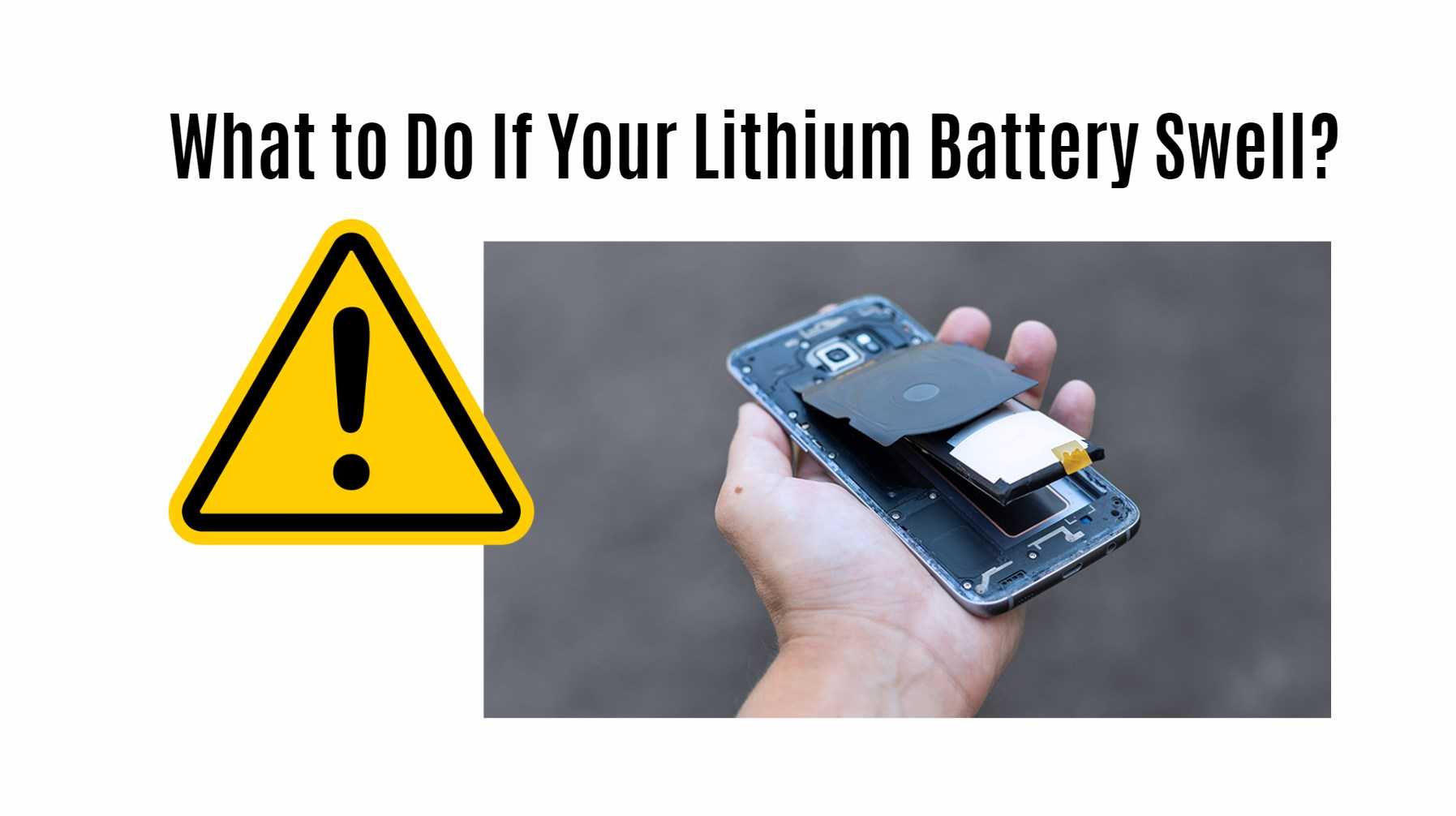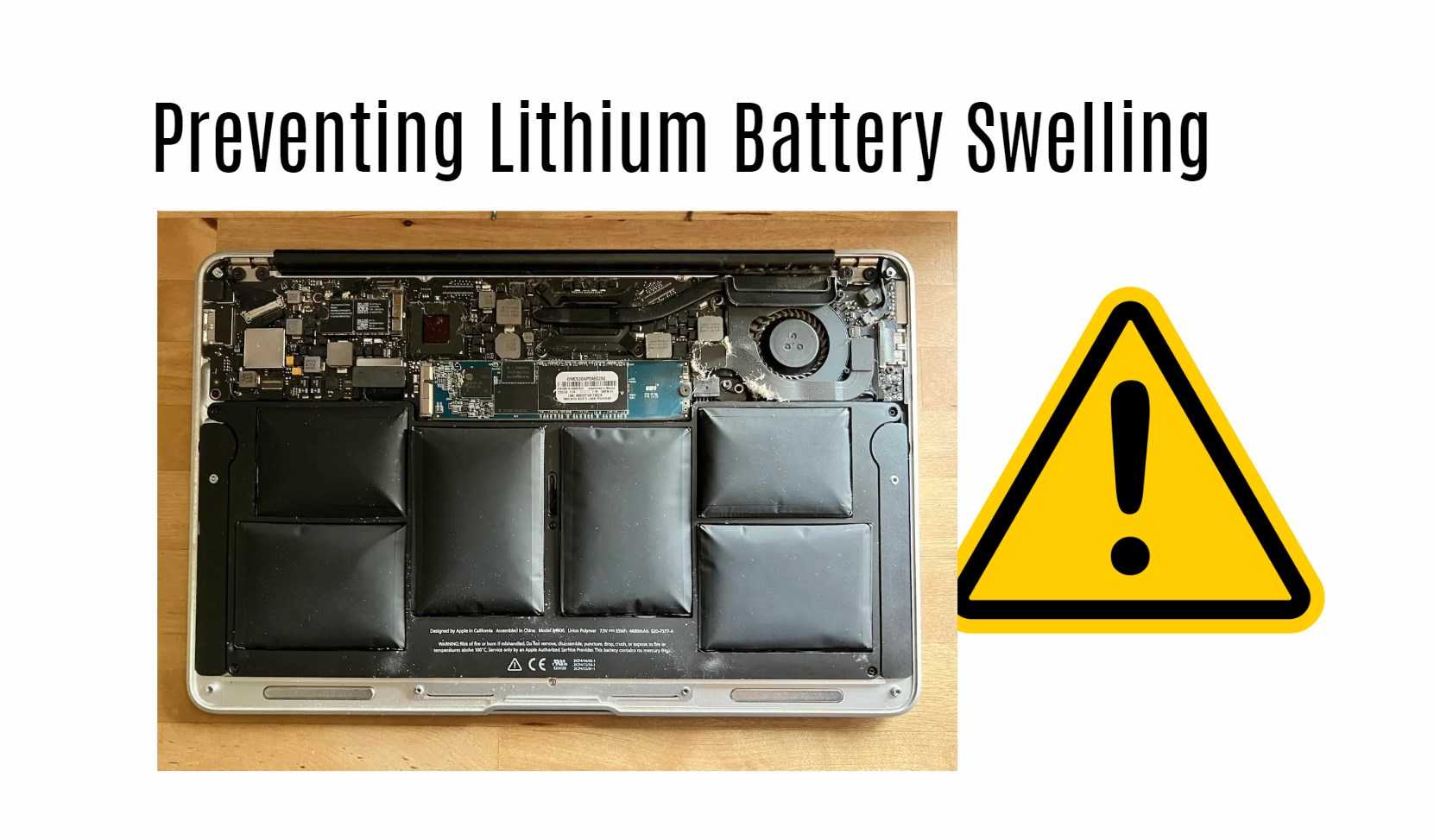Lithium batteries are essential components in our modern electronic devices, powering everything from smartphones and laptops to electric vehicles. However, one of the common issues faced by users is battery swelling, which poses significant safety risks. In this comprehensive guide, we will delve into the causes, risks, preventive measures, and appropriate actions to take when dealing with swollen lithium batteries.
Understanding Lithium Battery Swelling
What Causes Lithium Batteries to Swell?
Lithium battery swelling occurs due to various factors, which primarily include:
- Overcharging: Continuously charging a battery beyond its full capacity can lead to heat generation, damaging internal components and causing swelling.
- High Temperatures: Exposure to extreme heat or prolonged direct sunlight can degrade the battery’s internal structure, leading to swelling.
- Mechanical Damage: Physical impacts such as dropping or puncturing the battery can cause it to leak electrolytes, resulting in swelling.
- Incompatible Chargers: Using chargers that are not designed for your specific battery can lead to voltage spikes and internal damage.
- Manufacturing Defects: Poor quality control during the production process can result in batteries that are prone to swelling.
Understanding these causes is crucial for both preventing and managing battery swelling effectively.
Risks Associated with Swollen Lithium Batteries
Swollen lithium batteries present several risks, including:
- Device Damage: Swelling can exert pressure on other components within the device, potentially causing permanent damage.
- Leakage of Toxic Electrolytes: Swollen batteries can leak harmful electrolytes, which are both toxic and corrosive, posing health risks and further damaging the device.
- Fire and Explosion Hazard: Continued use of a swollen battery can lead to overheating, increasing the risk of fire or explosion.
Given these risks, it is imperative to address any signs of battery swelling promptly.
Handling Swollen Lithium Batteries
Immediate Steps to Take
If you notice that your lithium battery is swelling, follow these steps:
- Stop Using the Device: Immediately cease using the device and disconnect it from any power source.
- Remove the Battery: If possible, carefully remove the battery from the device. Avoid puncturing or disassembling it.
- Store Safely: Place the swollen battery in a non-flammable container with ample ventilation. A metal box is ideal.
- Disposal: Do not dispose of the battery in regular trash. Contact your local waste management authority or a certified e-waste recycler for proper disposal instructions.
Professional Disposal
Proper disposal of swollen batteries is crucial to prevent environmental contamination and health hazards. Many electronic stores and recycling centers offer services for safely disposing of lithium batteries.
Preventing Lithium Battery Swelling
Preventive measures can significantly extend the lifespan of your lithium batteries and ensure safe usage. Here are some key strategies:
Proper Charging Practices
- Avoid Overcharging: Unplug the charger once the battery reaches full capacity. Overcharging can lead to heat buildup and swelling.
- Use Recommended Chargers: Always use chargers specified by the device manufacturer to ensure proper voltage and current flow.
Temperature Management
- Avoid Extreme Temperatures: Store and use batteries in environments with moderate temperatures. Extreme heat or cold can damage the battery.
- Prevent Direct Sunlight Exposure: Prolonged exposure to direct sunlight can cause the battery to overheat and swell.
Handling and Storage
- Avoid Physical Damage: Handle batteries with care to prevent drops or punctures.
- Proper Storage: Store batteries in a cool, dry place away from flammable materials and moisture.
Conclusion
Swollen lithium batteries are a serious concern, requiring immediate and appropriate action to mitigate risks. By understanding the causes, addressing swelling promptly, and implementing preventive measures, users can ensure the safety and longevity of their devices. Always prioritize safety and follow proper disposal methods to protect both personal health and the environment.





